When it comes to stress and anxiety, what you eat can make a bigger difference than you think. While some foods quietly support your body’s ability to stay calm, others may be secretly fueling your anxious thoughts and mood swings. Experts say your daily diet plays a key role in how your brain and nervous system respond to pressure. Whether you’re navigating a busy workweek or just trying to feel more balanced, these food choices matter. Ahead, discover 9 stress-reducing foods you’ll want to stock up on—and 9 anxiety-triggering ones it may be time to cut back.
1. PICK: Fatty Fish (salmon, sardines)
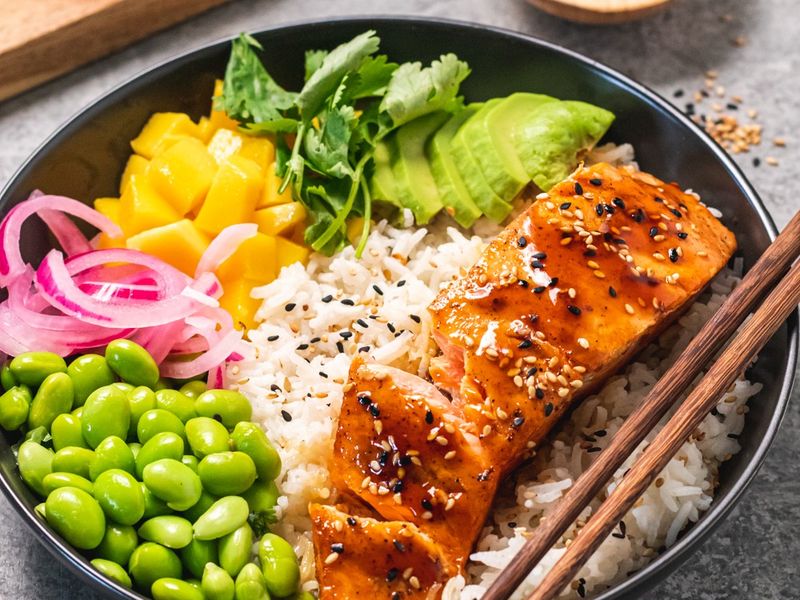
When stress takes over, omega-3-rich fatty fish can help bring balance back. These healthy fats play a powerful role in reducing inflammation and regulating mood-related neurotransmitters like serotonin and dopamine. Regular intake has been linked to lower levels of cortisol, the body’s primary stress hormone. Salmon, sardines, and mackerel are especially potent, packing in both EPA and DHA—the omega-3s most associated with mental well-being. Beyond brain benefits, they also support heart health and help keep your nervous system resilient. Grilled, roasted, or added to salads, fatty fish are a smart staple for any stress-conscious meal plan.
2. PICK: Avocados
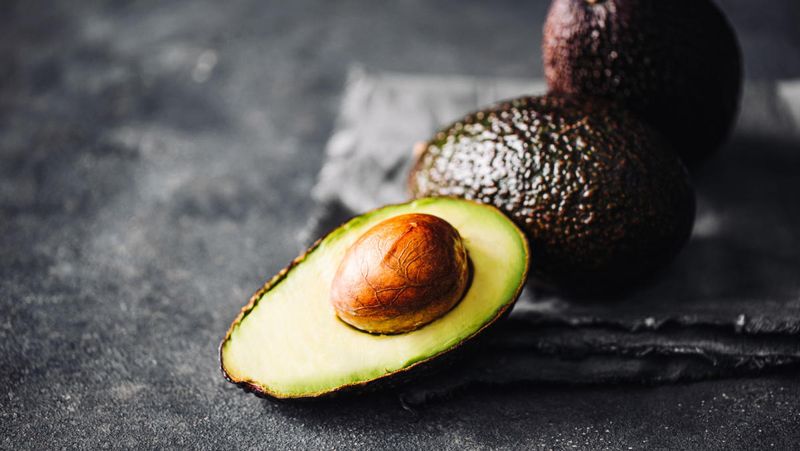
There’s more to avocados than trendy toast—they’re loaded with stress-fighting nutrients. Rich in magnesium, potassium, and healthy monounsaturated fats, avocados help calm the nervous system and regulate blood pressure. Magnesium in particular supports the production of GABA, a neurotransmitter known for promoting relaxation. Their creamy texture also delivers satisfaction that can curb emotional eating triggers during tense moments. Add them to smoothies, grain bowls, or breakfast plates for a mood-boosting upgrade. Plus, they contain B vitamins essential for brain health and energy balance, which means you’ll feel more equipped to handle daily challenges with focus and ease.
3. PICK: Dark Chocolate

Craving chocolate when you’re overwhelmed might actually be your body’s way of asking for help. High-quality dark chocolate (70% cocoa or higher) is rich in flavonoids, magnesium, and mood-lifting compounds that can ease tension and improve blood flow to the brain.
It also encourages the release of endorphins and serotonin, helping create a subtle feeling of pleasure and calm. Unlike sugary milk chocolate, dark varieties offer benefits without the crash. A small square or two can act as a satisfying mini escape during a rough day—just enough indulgence to feel good without going overboard.
4. PICK: Fermented Foods (yogurt, kombucha, kimchi)
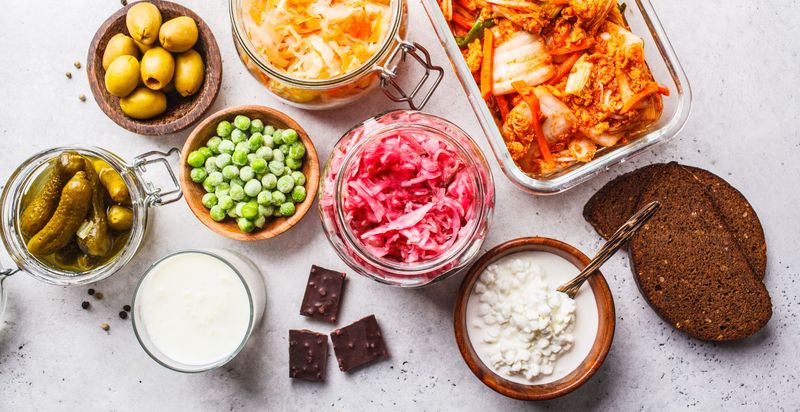
A healthy gut isn’t just good for digestion—it’s also tied directly to emotional balance. Fermented foods introduce beneficial probiotics into the digestive system, which may positively influence the gut-brain axis. This connection plays a critical role in mood regulation and the body’s stress response.
Yogurt with live cultures, kefir, kimchi, and sauerkraut can all contribute to a more stable mental state. Research suggests that balanced gut bacteria may reduce symptoms of anxiety and depression. Adding fermented foods to your routine can be a simple yet powerful way to support inner calm from the inside out.
5. PICK: Bananas
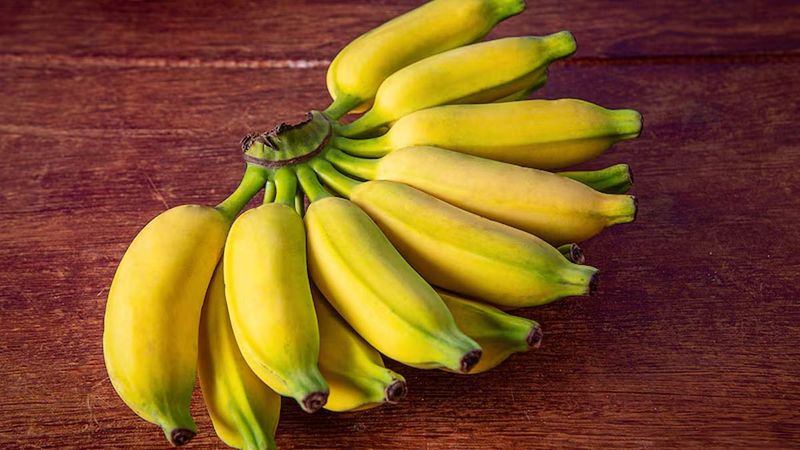
Don’t underestimate the power of a humble banana when it comes to stress relief. These convenient fruits are loaded with potassium and magnesium—two minerals known to support healthy blood pressure and muscle relaxation. Bananas also contain tryptophan, an amino acid the body uses to produce serotonin, which promotes feelings of well-being. The natural sugars in bananas provide a steady source of energy without the rollercoaster crash of processed sweets. Whether eaten on their own, added to oatmeal, or blended into smoothies, bananas deliver a nutrient-packed punch that can help stabilize mood and reduce anxiety-related tension.
6. PICK: Spinach
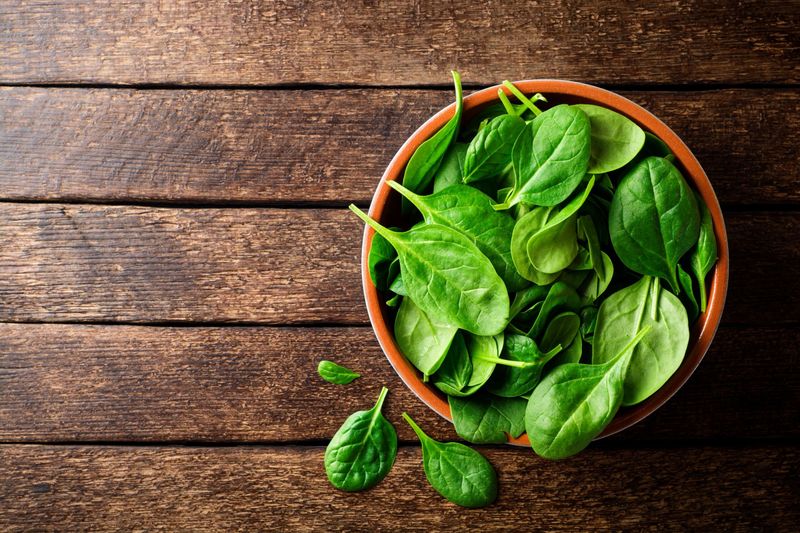
Leafy greens like spinach deserve a spotlight when it comes to mental wellness. This versatile vegetable is packed with folate, magnesium, and iron—nutrients that all play a role in emotional regulation and brain function. Folate supports the production of dopamine, a neurotransmitter tied to pleasure and motivation.
Meanwhile, magnesium helps reduce cortisol levels and enhance feelings of calm. Toss spinach into soups, omelets, salads, or pasta dishes for a stress-smart upgrade. Its mild flavor makes it easy to sneak into meals without disrupting taste, and its nutrient profile is a secret weapon against emotional burnout.
7. PICK: Green Tea
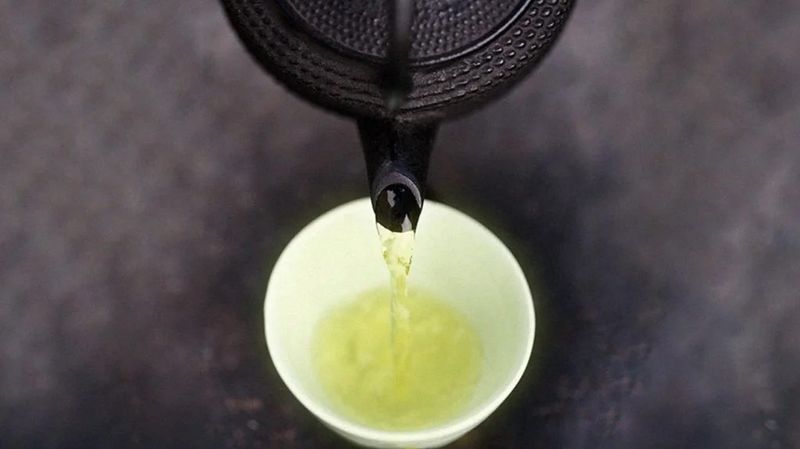
Rather than reaching for another cup of coffee, consider sipping on green tea when you’re feeling overwhelmed. This ancient brew contains L-theanine, a unique amino acid that promotes relaxation without drowsiness. L-theanine has been shown to reduce psychological stress by increasing alpha brain wave activity—associated with a calm but alert state. Green tea also provides a gentle dose of caffeine for improved focus without the jittery side effects. Whether you enjoy it hot or iced, green tea can be a mindful beverage choice to center your thoughts and calm your nerves throughout the day.
8. PICK: Nuts (almonds, walnuts)
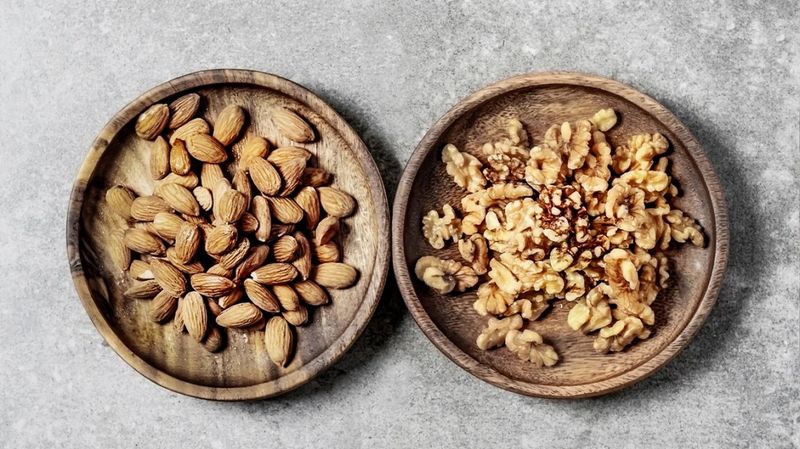
When you need a quick snack that supports stress resilience, reach for a handful of nuts. Almonds, walnuts, and pistachios are loaded with magnesium, B vitamins, and healthy fats—all essential nutrients for nervous system support.
Walnuts, in particular, contain omega-3 fatty acids that help counteract the effects of chronic stress. Meanwhile, almonds offer vitamin E and zinc to help reduce oxidative stress. Their satisfying crunch and slow-digesting fats also help regulate hunger and blood sugar levels, which can prevent mood swings. Keep them in your desk, car, or pantry for a stress-savvy snack at any time.
9. PICK: Citrus Fruits (oranges, grapefruits)
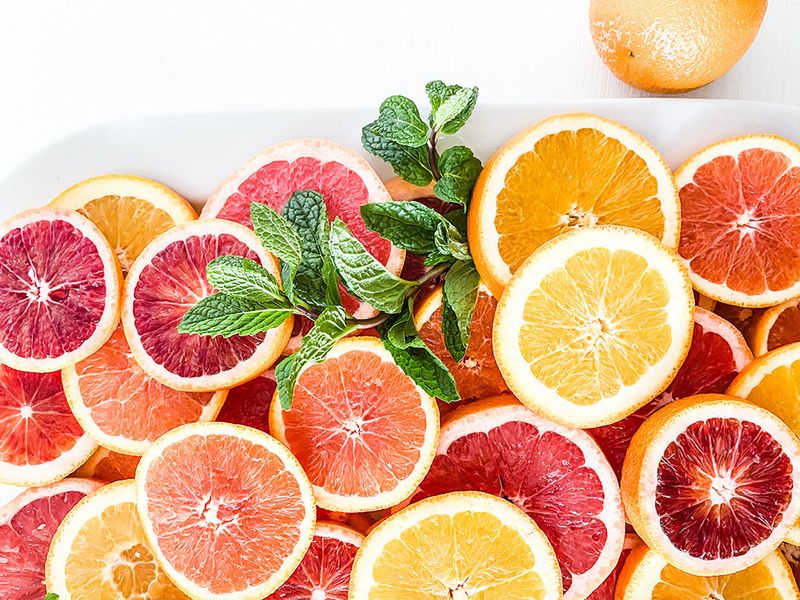
Bright, juicy, and full of vitamin C, citrus fruits are natural stress busters. Vitamin C has been shown to lower cortisol levels and support immune function during stressful periods. These fruits also offer hydration and natural sweetness, both of which can boost energy and mood. Oranges and grapefruits can be peeled and eaten on the go, while lemons add zing to water, tea, and dressings. Their refreshing aroma alone can trigger a mild calming effect through scent-related brain pathways. Simple and satisfying, citrus fruits are a vibrant addition to any diet aimed at reducing stress.
10. SKIP: Caffeine (coffee, energy drinks)
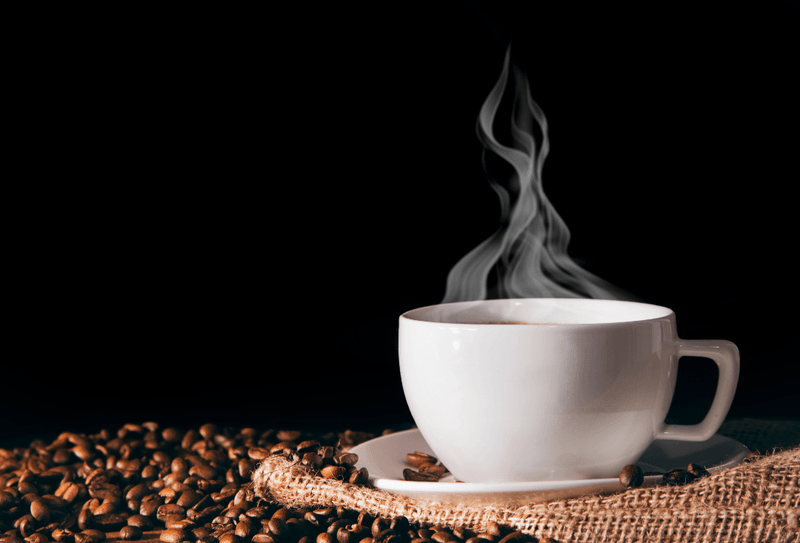
The jolt of energy you get from caffeine may come at a cost—especially if you’re prone to anxiety. Caffeine stimulates the central nervous system, increasing heart rate, blood pressure, and levels of stress hormones like cortisol.
This can lead to jitteriness, restlessness, and even panic attacks in sensitive individuals.
Energy drinks pack particularly high doses of caffeine, often combined with sugar and other stimulants that compound the effects. While a moderate cup of coffee may be fine for some, going overboard can seriously impact your mood stability. Reducing caffeine can be a game-changer for anxious minds.
11. SKIP: Sugary Foods and Drinks
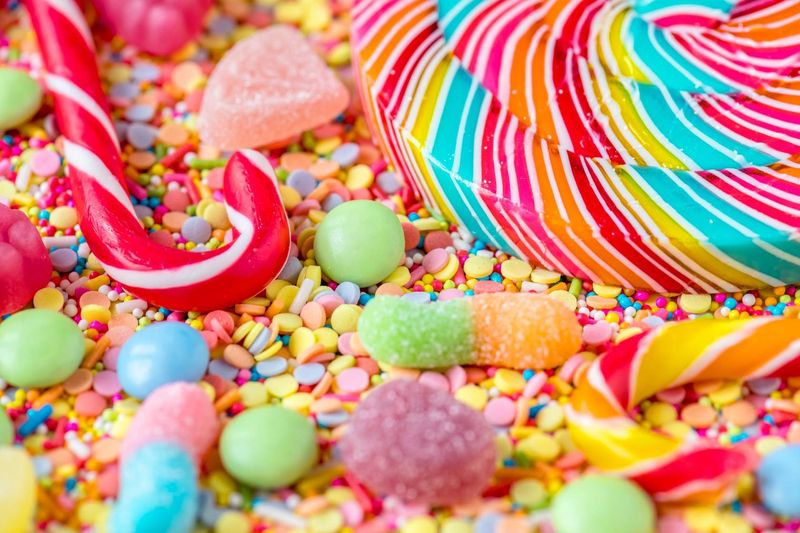
That sweet treat might lift your spirits briefly, but the crash that follows can leave your mood in pieces. Sugary foods and drinks cause rapid spikes in blood glucose, followed by sharp drops that can lead to irritability, fatigue, and anxiety. These sugar highs and lows also interfere with insulin and stress hormone balance. Over time, chronic sugar consumption may worsen mental health by promoting inflammation and impairing brain function. Sodas, candy, and even seemingly “healthy” snacks like granola bars can be hidden culprits. Managing sugar intake is essential for keeping emotional highs and lows in check.
12. SKIP: Alcohol

Although alcohol might seem like a shortcut to relaxation, it’s actually a double-edged sword when it comes to mental health. Alcohol acts as a depressant, slowing down brain activity and interfering with neurotransmitter balance.
While it can feel calming in the moment, alcohol disrupts sleep quality and alters serotonin levels, often leading to heightened anxiety the following day. This rebound effect can create a vicious cycle of self-medication and worsening symptoms. Even moderate drinking can exacerbate anxiety in those already susceptible. Limiting or avoiding alcohol entirely can significantly improve mood regulation and reduce anxious episodes over time.
13. SKIP: Processed Meats and Packaged Foods

Convenient as they are, processed meats and packaged foods often come loaded with preservatives, additives, and unhealthy fats that can affect your mental state. Nitrates, artificial coloring, and flavor enhancers may interfere with brain chemistry, while low nutrient content leaves the body lacking in the vitamins and minerals it needs to stay balanced. Over time, diets high in ultra-processed foods have been linked to increased rates of anxiety and depression. Swapping out hot dogs, deli meats, and frozen meals for whole, minimally processed options can go a long way in supporting a calmer, more stable mood.
14. SKIP: Fried Foods

Heavily fried foods may satisfy cravings, but they’re also loaded with trans fats and refined oils that increase inflammation in the body and brain. Chronic inflammation is a known contributor to mood disorders, including anxiety. What’s more, fried foods are often low in nutrients, offering little support to the systems that regulate stress and emotion. Meals high in grease can also disrupt digestion, leading to discomfort that may heighten anxious feelings. Reducing your intake of fried fare—and choosing baked or air-fried alternatives instead—can lighten both your physical and mental load in a noticeable way.
15. SKIP: Artificial Sweeteners (e.g., aspartame)
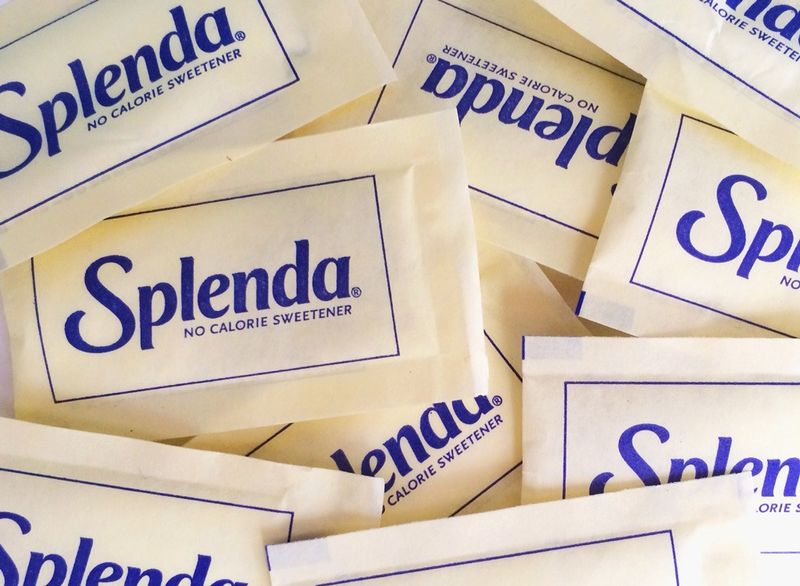
What seems like a healthy sugar substitute could actually be stirring up mental unrest. Artificial sweeteners such as aspartame and saccharin may interfere with serotonin production and alter brain signaling, potentially increasing feelings of anxiety in some individuals.
These additives are found in everything from diet sodas to sugar-free gums and yogurts. Some research suggests they may disrupt gut bacteria as well, further compromising mood through the gut-brain axis. While responses vary, anyone experiencing persistent anxiety might consider cutting out artificial sweeteners as an easy, low-risk experiment to see if symptoms improve.
16. SKIP: High-Sodium Foods

A diet rich in salty snacks and packaged meals can contribute to anxiety in more ways than one. Excess sodium can raise blood pressure and trigger the release of adrenaline, mimicking a stress response in the body. Over time, this physiological tension can manifest as nervousness or panic, especially in those who are already anxious. Sodium-heavy diets may also impair neurological function by disrupting electrolyte balance. Foods like canned soups, chips, and instant noodles tend to be top offenders. Cooking at home with fresh ingredients and using herbs for flavor instead of salt can make a meaningful difference.
17. SKIP: Refined Carbs (white bread, pastries)

Not all carbs are created equal—refined carbs, stripped of fiber and nutrients, can send blood sugar soaring and crashing quickly. This up-and-down energy rollercoaster often contributes to irritability, fatigue, and yes, anxiety. These foods also lack key nutrients like magnesium and B vitamins, which are critical for nervous system regulation. Eating refined carbohydrates in excess can leave you both physically and emotionally drained. Opting for complex carbs like oats, quinoa, or whole grains provides steadier energy and better mental support. Making the switch may help smooth out both your digestion and your emotional state.
18. SKIP: Energy Drinks
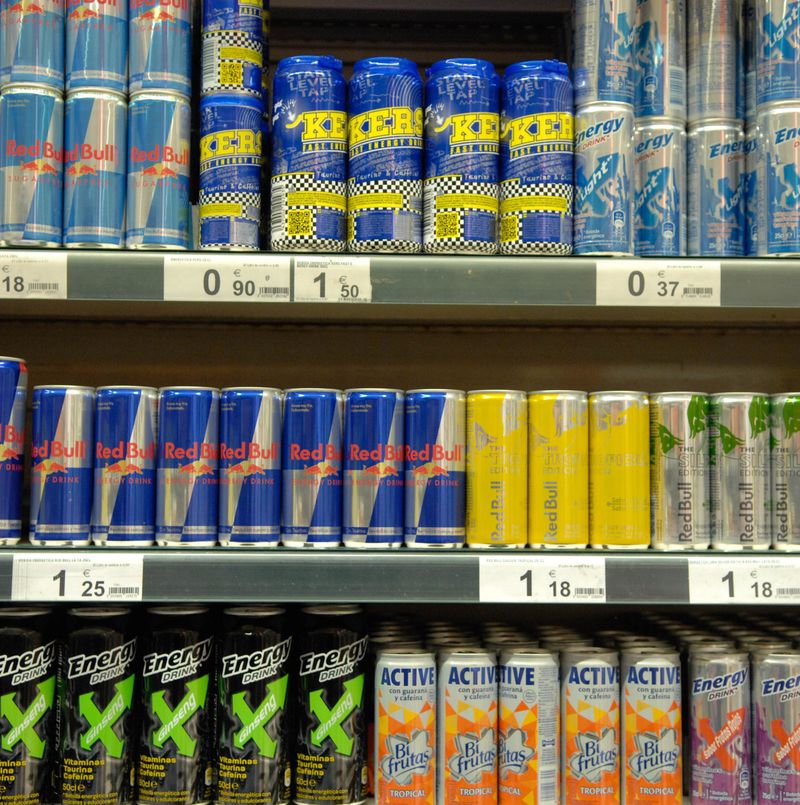
Few beverages are as problematic for anxious individuals as energy drinks. Often containing sky-high levels of caffeine, sugar, and stimulating compounds like taurine or guarana, they deliver a potent punch to the nervous system.
This combination can increase heart rate, elevate blood pressure, and induce restlessness, shakiness, and panic-like symptoms. The quick energy surge is typically followed by a hard crash that leaves you feeling worse. Unlike coffee or tea, energy drinks are unregulated in many regions and may include ingredient blends that haven’t been thoroughly studied. For better mental health, it’s best to skip these altogether.
Leave a comment